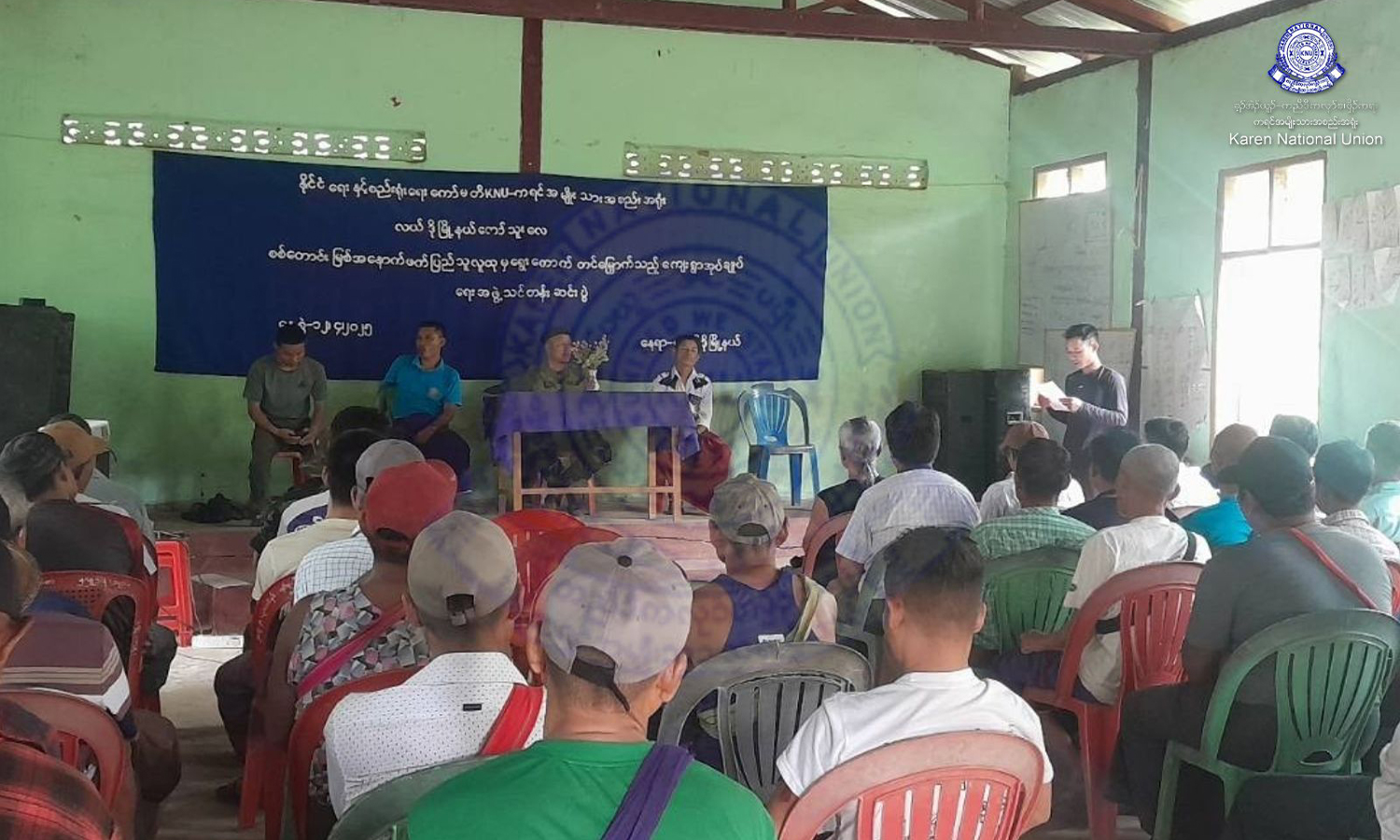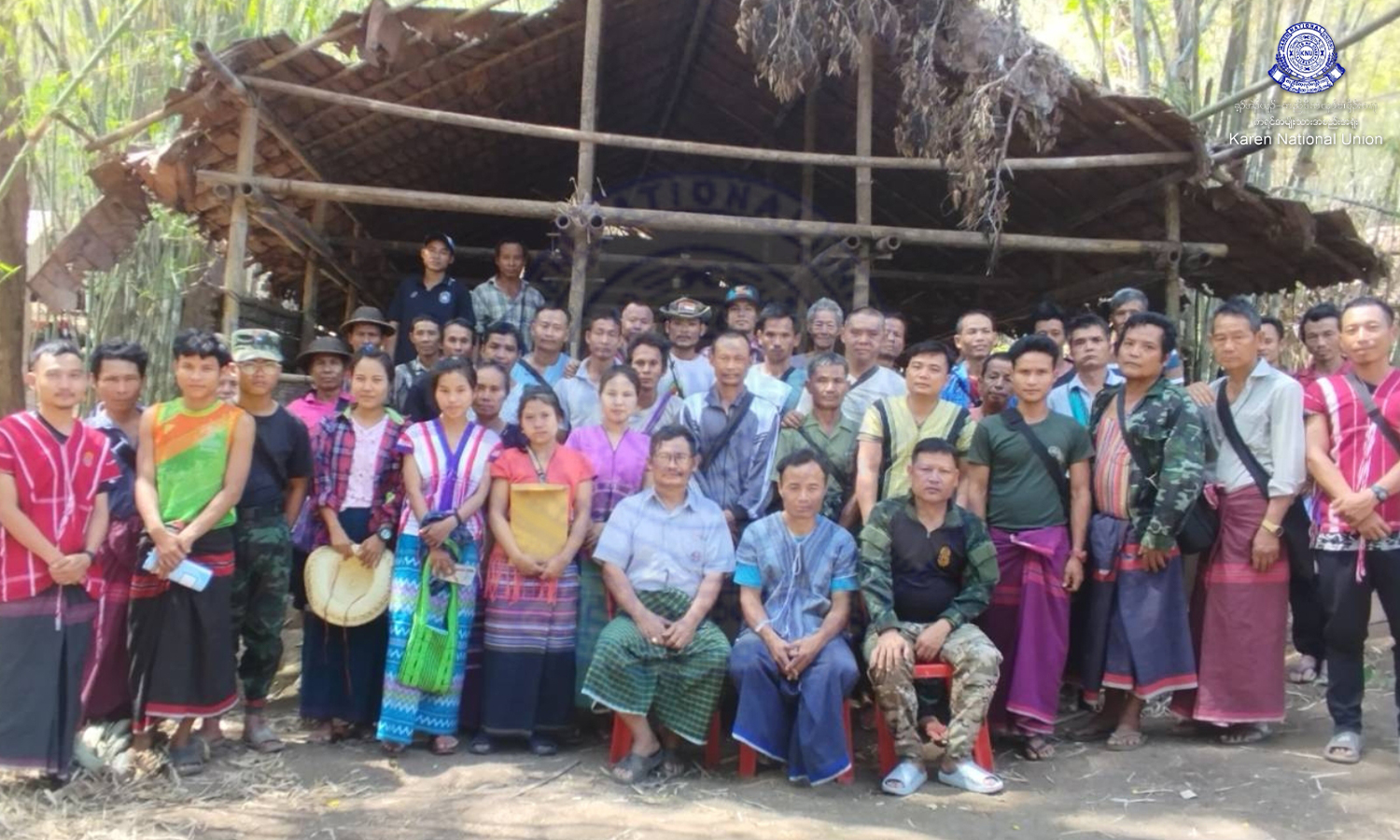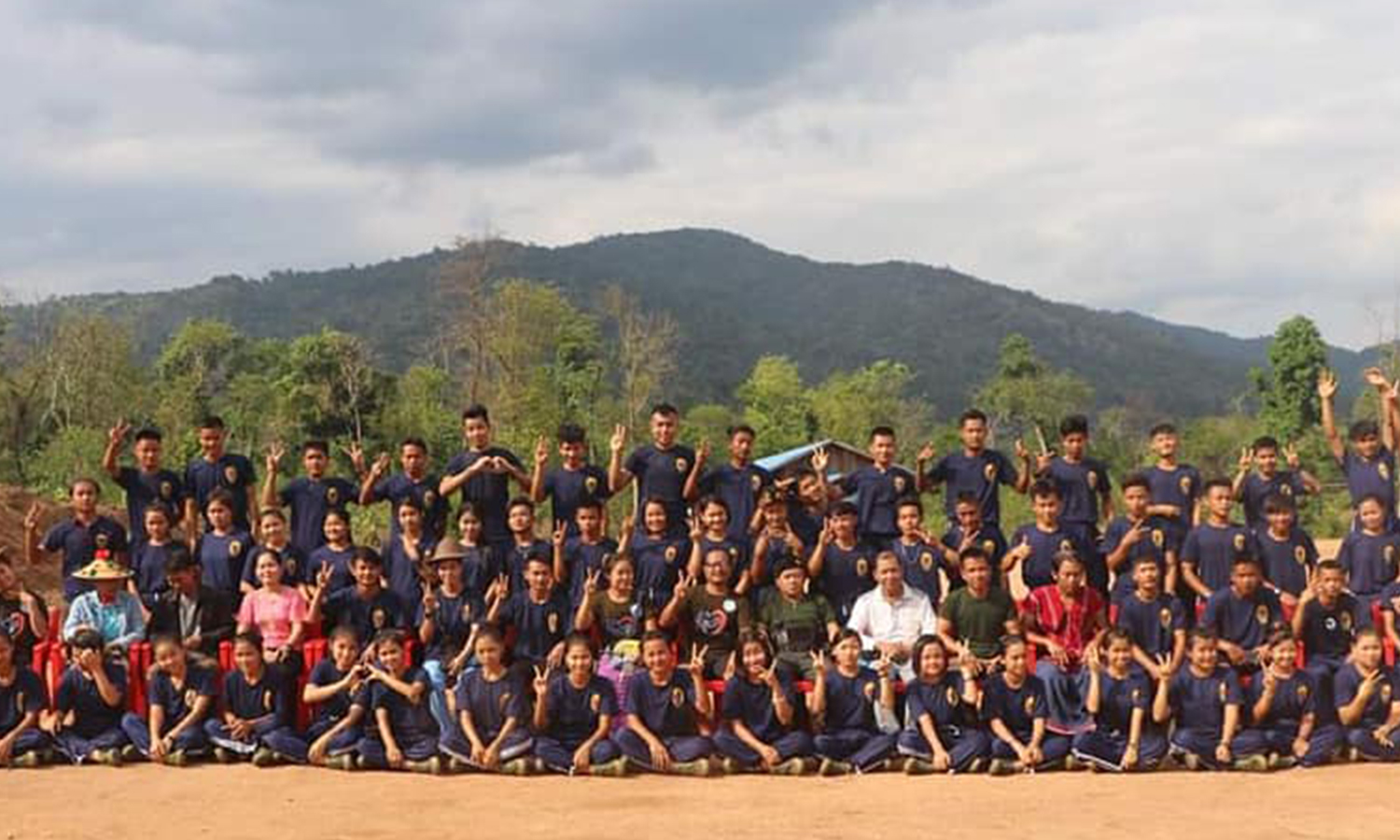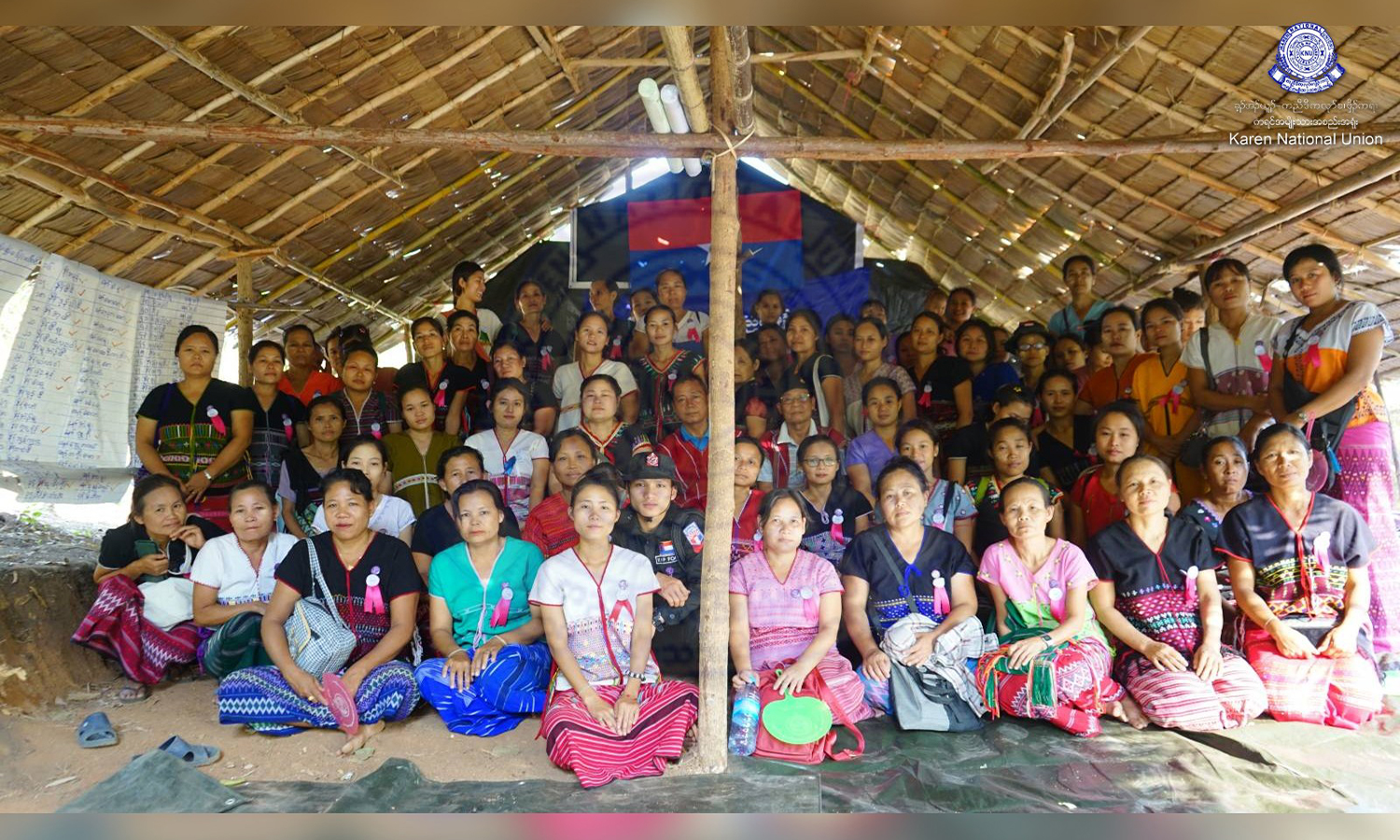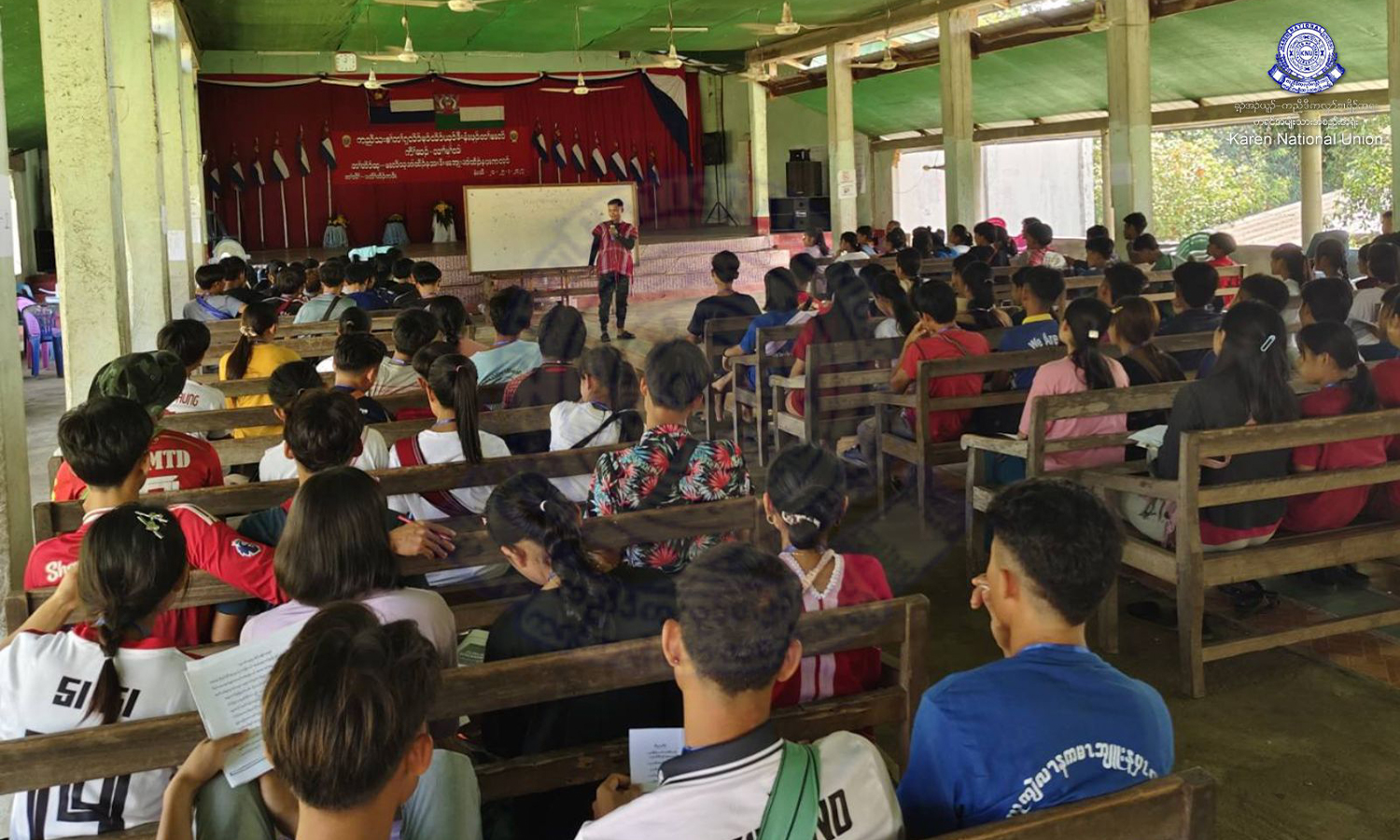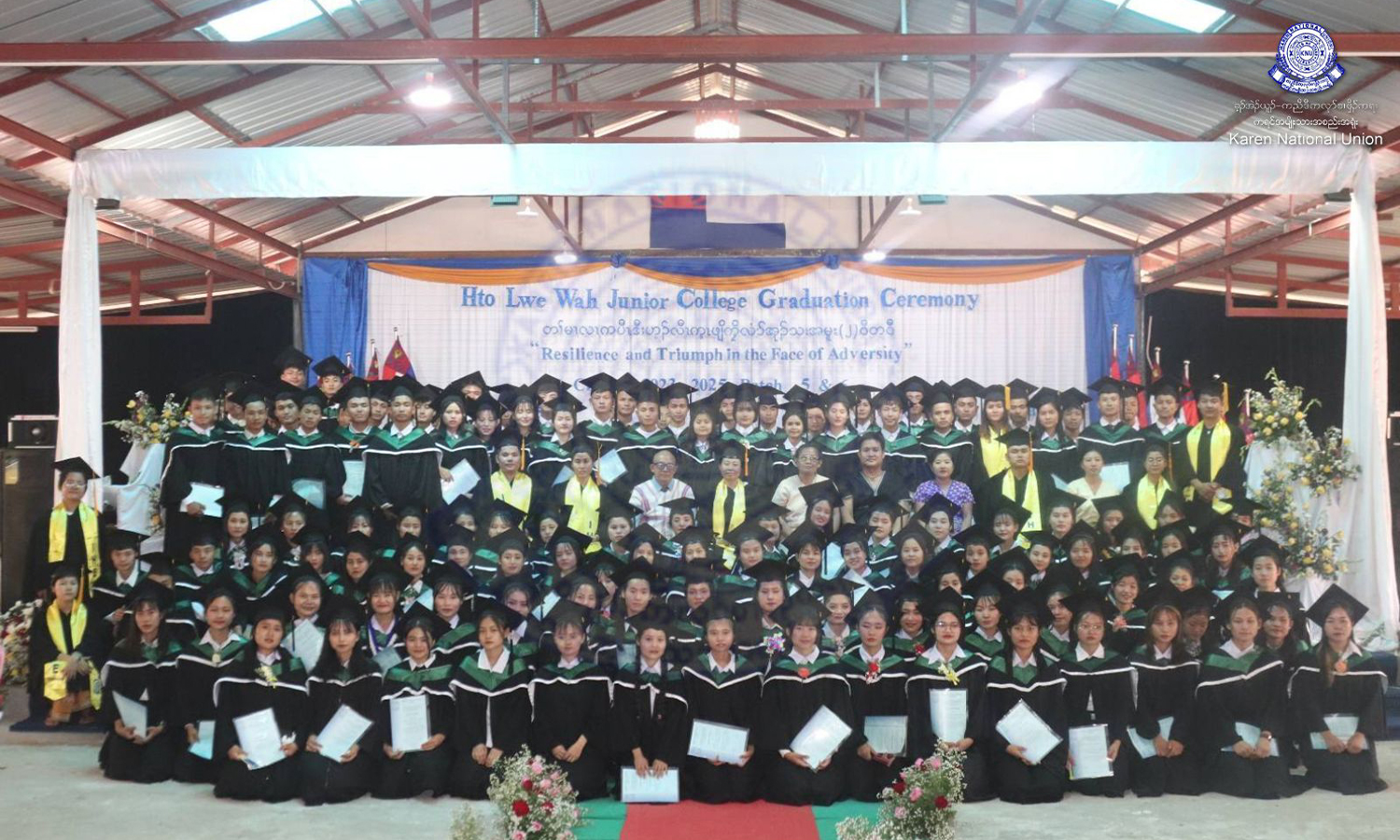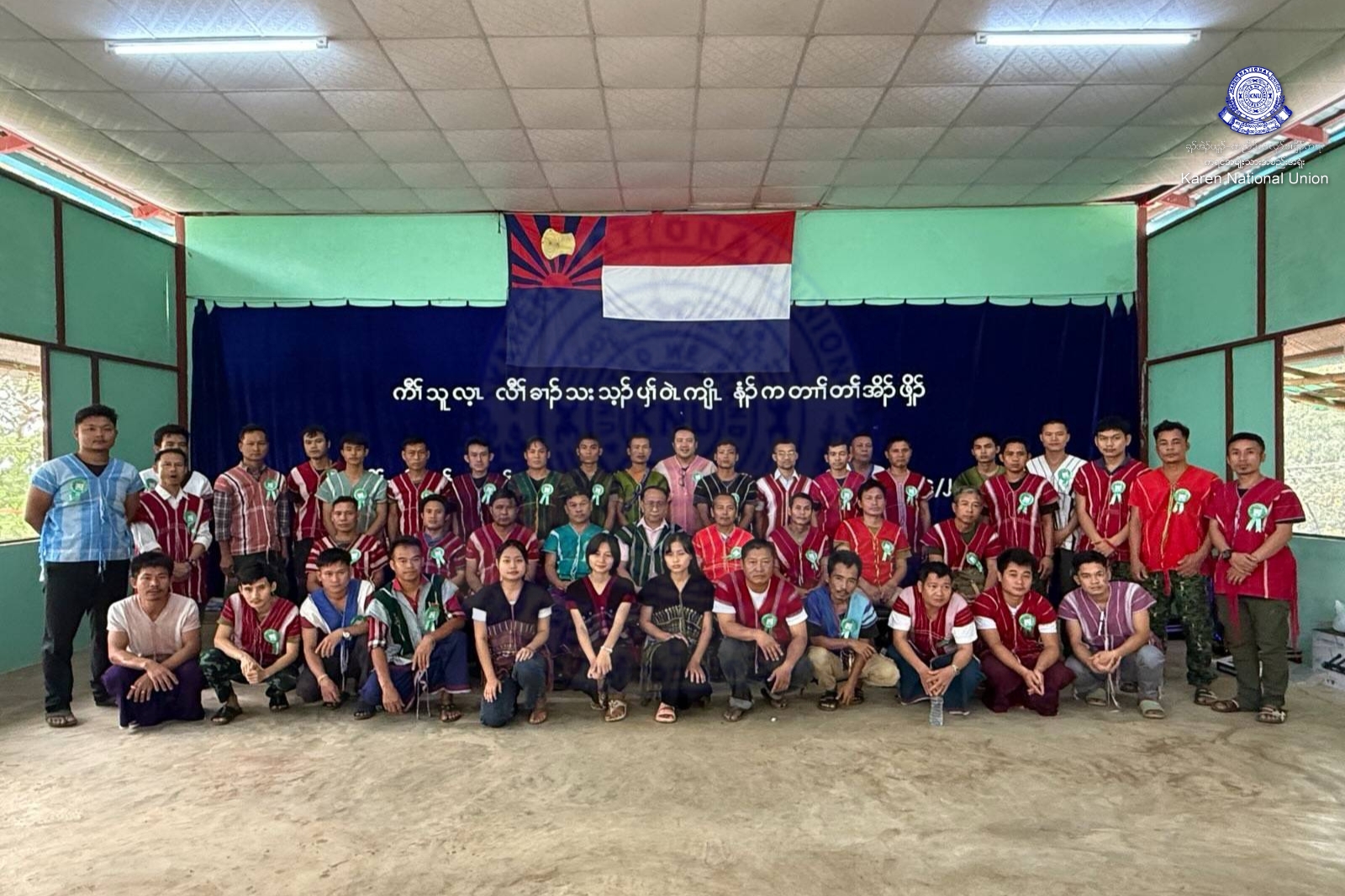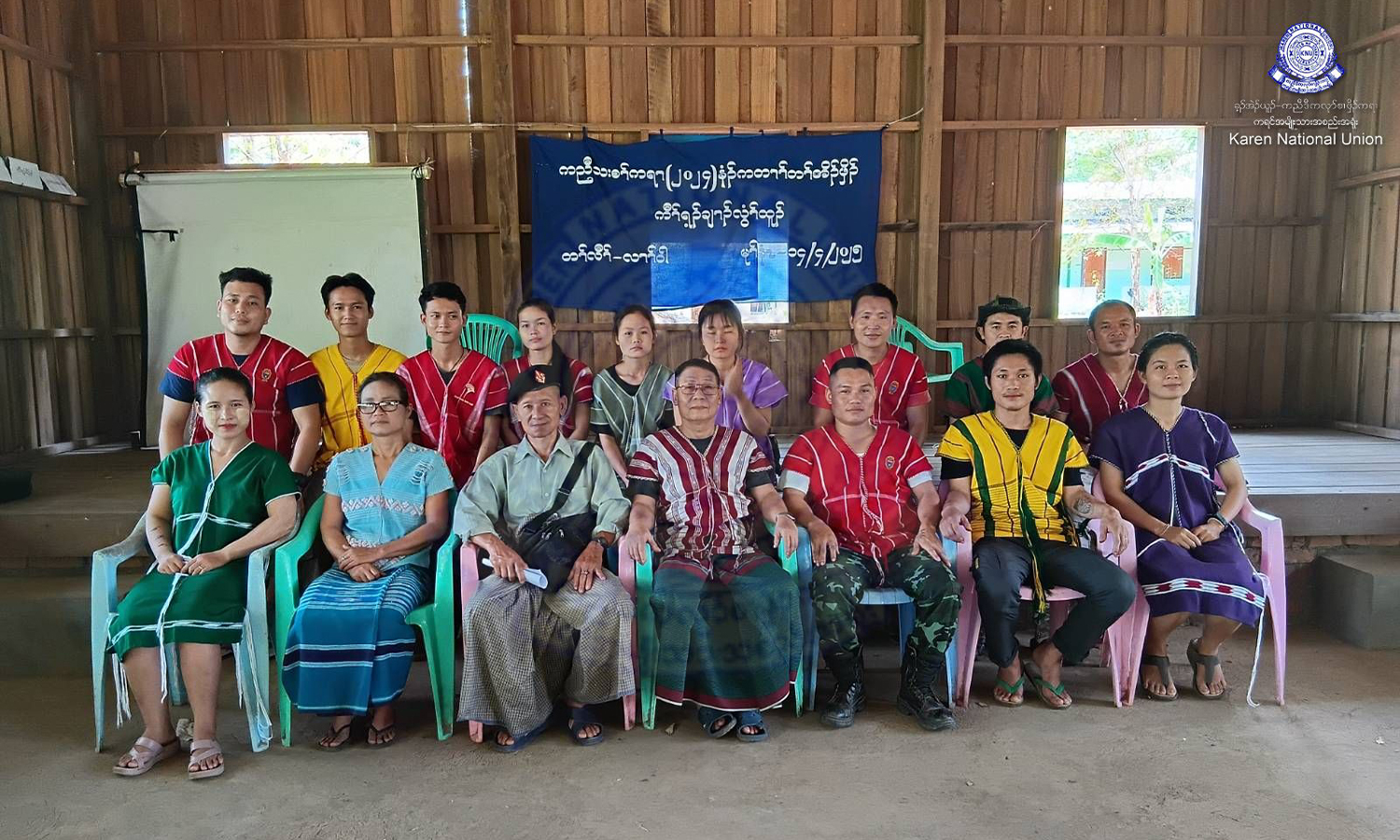 Document.docx.jpg) Peace Process
Peace Process
Ethnic Armed Organisations and Myanmar Government Negotiators Agree To The Nationwide Ceasefire (Draft) Document
A historical agreement has been reached between ethnic armed organisations’ Nationwide Ceasefire Coordination Team (NCCT) and the government’s Union Peace-making Work Committee (UPWC). The approved draft of the single text nationwide ceasefire agreement document that was negotiated and drafted between the two parties has been agreed. The negotiations commenced following the ethnic armed organisations' historical summit in Laiza, the KIO headquarters, in early November 2013. This historical summit not only adopted the 11-point ethnic armed organisations' common position, but also formed NCCT to negotiate with the government on behalf of them.
In November 2013 when leaders of ethnic armed organisations and UPWC met for the first time in Myitkyina, Kachin State, immediately following the Laiza Summit, NCCT was introduced and the first round of negotiations talks officially started. Both sides agreed to meet again in Hpa-an, the capital city of Karen State to finalise the draft agreement. Due to changes in the negotiation venue, the proposed negotiation talks in Hpa-an never materialised and the official negotiation talks commenced in Rangoon, Burma.
At first both NCCT and UPWC leaders expected the nationwide ceasefire agreement negotiation talks will be achieved fairly quickly followed by the draft framework for political dialogue. However, the negotiation talks took one year and five months, seven rounds of official negotiation talks, and around 20 informal meetings between the two parties either in Yangon or Chiang Mai, Thailand. In between, the ethnic armed organisations held two other summits in Law Khee Lar, Karen State and Laiza, Kachin State extending their mandate to NCCT negotiators.
The recent fighting between some NCCT members and Tamadaw escalated to the point that could have derailed the process and deferred the seventh round of talks.
When the seventh round of nationwide ceasefire negotiations between NCCT and UPWC commenced on the 17 March, unlike previous talks which solely discussed the nationwide ceasefire agreement, NCCT started with the discussion of the ongoing fighting in northern Shan and Kachin States, military matters and the nationwide ceasefire agreement. Furthermore, international observers such as UN Special Envoy to Myanmar Mr. Vijay Nambiar and Chinese Special Envoy Mr. Wang Ying Fan, as well as armed groups observers including RCSS (Restoration Council of Shan State), ABSDF (All Burma Students' Democratic Front), NDAA (National Democratic Alliance Army) and NSCN-K (National Socialist Council of Nagaland-Khaplang) attended as observers in the last round of talks.
After intense negotiations, both parties reached the final nationwide ceasefire (draft) agreement on the seventh day of the seventh round. Karen Nation Union General Secretary and NCCT Deptuy Team Leader One P’doh Saw Kwe Htoo, said after the talks that "As one of the NCCT team leaders, I am satisfied with the final draft that we accomplished. It is important that both sides follow the rules and implement the agreements that we already agreed in the nationwide ceasefire agreement." KNU Executive Committee Member and NCCT Technical Team Leader P’doh Saw Tah Doh Moo, said "We have just arrived at the entry point after more than 60 years of our struggle. We still need to open the nationwide ceasefire agreement door before we can commence the political dialogue. However, I am cautiously optimistic that we will pass through this step and soon be at the political dialogue table".
The final draft agreement will have to be summited back to the ethnic and government senior leaders for final approval before the official signing. Getting final approval from the 16 ethnic armed organizations will be another challenge since some ethnic leaders share different perspectives on the peace process.
Achieving the final draft of nationwide ceasefire agreement, which has never happened in the history of Burma, brings high hopes and expectations. The next step will be more challenging, however both NCCT and UPWC know very well that, they have to past through this step if they want to settle their political conflicts and fulfil their people aspirations.




